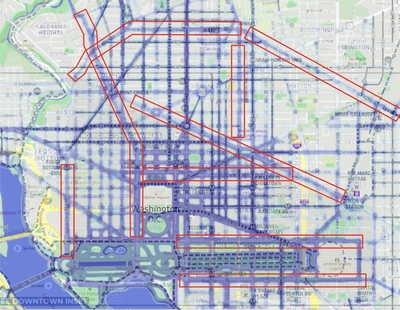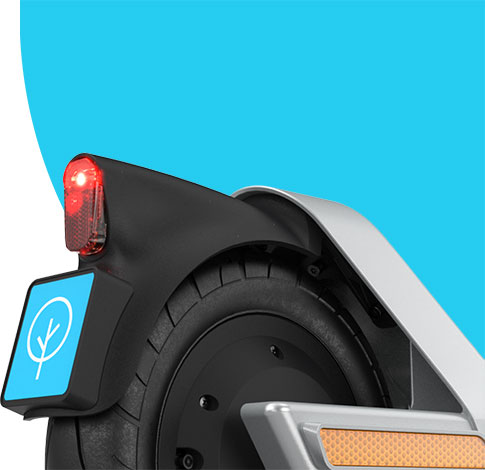In Washington, D.C., shared scooters are much more than just an eco-friendly means of transportation.
Recent collaborations between Bird and various organizations across the city have supported everything from vaccinations to transit ridership, and the positive results of these efforts are helping demonstrate the many ways micromobility is making a difference in the nation’s capital.
Bird and LAYC Partner on Vaccine Outreach Efforts
When the Latin American Youth Center (LAYC) was contracted by the Mayor’s office in August to help with vaccine education and outreach, they knew their ambassadors could use some help with transportation around the district.
That’s where Bird came in.
Our local team was happy to partner with LAYC to provide free daily rides, helmets and safety information to ensure their ambassadors could easily transport themselves across the city for door to door canvassing.
Bird’s local Fleet Managers played a vital role as well, dropping off vehicles at LAYC’s Columbia Road, NW headquarters every morning for easy micromobility access.
“With the right partners, shared scooters can be an incredibly valuable community resource,” said Dereck Myers, head of LAYC’s vaccine outreach efforts. “Bird’s support and engagement helped our vaccination outreach team easily and sustainably canvass the city, covering hundreds of miles to speak with local Washington, D.C. residents about the importance of vaccinations in the fight against COVID.”
Bike Lane Heat Mapping
When Mayor Bowser announced that the 2022 budget would include funding for bike lane infrastructure, the team at Bird reached out to help.
By collaborating with the city’s data team, we were able to develop a heat-map of our most frequently ridden routes and superimpose it onto DDOTs bike map. This exercise helped not only identify gaps in the current bike infrastructure, but it ultimately led to a recommendation of seven investment opportunities for future protected bike lanes. These include parts of Independence Ave, Massachusetts Ave, 23 NW Street and H Street.

Our findings took into consideration things like road width, existing bike lanes as well as current plans for additional infrastructure improvements. They are now with the city’s bike team, and Bird will continue to share relevant information to help improve cycling and scooter riding conditions throughout the capital.
Activating Last Mile Transit
Bird is committed to strengthening the ties between micromobility and public transportation, and Washington, D.C. is home to one of the most robust transit networks in the country.
This summer, in an effort to support and encourage multimodal mobility, our local team analyzed ride patterns and identified scooter “drop zones” that we believed would better help fill the gap between public transit and a rider’s origin or destination. We focused our attention primarily on equity wards where we believed the service would be most beneficial.
Preliminary results align with our initial hopes: we’re seeing multiple trips to and from transit stops targeted by our releases. Just as importantly, the percentage of these vehicles staying within ward has increased significantly, helping ensure that equity wards are always served by micromobility. Our findings have been shared with DDOT, and we will continue to build on these successes to foster truly multimodal transportation throughout D.C.
Learn More
To learn more about how Bird is working to help communities in more than 300 cities around the world, subscribe to the Bird Cities Blog.

